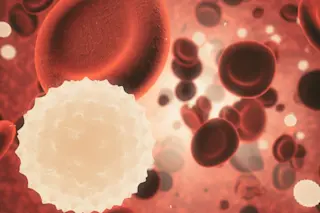When Don Draper takes a long, cool drag of his cigarette on screen and fills his "Mad Men" office with smoke, does it subtly nudge you toward lighting up yourself? If you're already a smoker, there's a good chance. A new study forthcoming in the Journal of Neuroscience suggests that watching on-screen smoking subtly effects the brains of people who already smoke, as if it were prepping them to light up. To test the idea, the researchers screened not TV's smokiest drama "Mad Men," but rather the first half-hour of Matchstick Men, the 2003 Nicholas Cage film about con artists.
They chose this movie because it features lots of smoking without alcohol use, sex or violence, which could have skewed the results. The volunteers did not know the experiment was about smoking. [LiveScience]
Dylan Wagner's team peered into the brains of 17 smokers and 17 non-smokers who watched Matchstick Men ...













